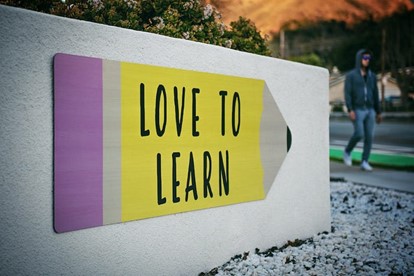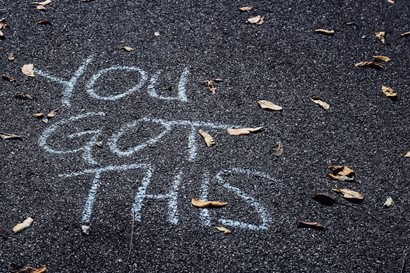The Montessori Method: A Personal Journey of Self-Transformation
The Montessori method has been a transformative educational experience for many, myself included. What began as a path to becoming a teacher and working with children evolved into a profound personal journey that led me to reflect on and heal various aspects of myself.
One of the most impactful realizations I had was in the context of parenting.
“Never help a child with a task at which he feels he can succeed.”
Quoted by Maria Montessori
The method emphasized the importance of allowing children to develop their independence and confidence. As a protective and anxious mother, I came to understand the power of a child’s natural desire to learn and adapt to their environment. I recognized that my intent to protect my child could inadvertently hinder his natural growth.
This realization prompted me to step back and become more of an observer, allowing my child to experience natural growth and learning, which not only brought joy to my child but also a sense of calmness to myself.
“I have studied the child, I have taken what the child has given me and expressed it, and that is what is called the Montessori Method.”
Quoted by Maria Montessori
The Montessori method places a strong emphasis on the independence of the child and the importance of providing opportunities for them to choose, act, think, and express themselves without domination. This approach, focused on self-directed activity and hands-on learning, not only impacted my understanding of child development but also profoundly influenced my parenting.
Experiencing the Montessori Transformation as an Educator
My journey as an educator has been profoundly influenced by the Montessori pedagogy, leading to a fundamental shift in my perspective. Coming from the traditional belief that teachers should possess all-encompassing knowledge has been replaced by a new understanding of the spiritual, intellectual, and physical preparation required of adults in the educational environment.
“The vision of the teacher should be at once precise like that of the scientist, and spiritual like that of the saint. The preparation for science and the preparation for sanctity should form a new soul, for the attitude of the teacher should be at once positive, scientific and spiritual.”
Quoted by Maria Montessori
“She must acquire a moral alertness which has not hitherto been demanded by any other system, and this is revealed in her tranquility, patience, charity, and humility. Not words, but virtues, are her main qualifications.”
Quoted by Maria Montessori
Furthermore, the recognition of the absorbent mind of a child aged from birth to six and their inclination to imitate adults has underscored the need for adults to be mindful of their actions, communication, and conscious responses around children.
Montessori emphasized that “imitation is the tool given by nature to children to help them adapt to the particular place where they were born and that enables them to adapt to the customs of their specific environment”
In the Montessori pedagogy, the concept of a ‘prepared environment’ is central. As educators, our role is to facilitate the natural desire of the child towards learning and growth by creating a conducive, complete child-centric environment that provides all the necessary resources and materials to support their developmental needs
This transformation has redefined my role as an educator, emphasizing the importance of self-preparation, moral alertness, and the creation of a nurturing environment that fosters the holistic development of the child. Embracing the Montessori approach has not only enriched my teaching methods but has also deepened my understanding of the profound impact educators can have on the lives of children.
“Nothing is gained by mere imitation or forced obedience; there must be inner preparation by which obedience becomes possible, and such preparation is indirect. Very clearly stands out the necessity for a prepared environment for children, and freedom wherein the soul can expand its powers.”
Maria Montessori, Education for a New World
The Transformation of My Personhood
Before I entered the world of Montessori, I was grappling with silent depression, trying to escape from my true self. However, the Montessori course was one of the parts of my escape plan; instead, it called me to heal from within and address what was there, providing warmth and acknowledgment of what’s within me.
As I delved into Maria Montessori’s work and her observations of children, I was struck by her approach to addressing things without prejudice or judgment, which also applies to how we view ourselves. This helped me become more empathetic and kinder towards myself and understand the power of my environment, including my way of thinking and being.
Montessori’s philosophy of compassionate living and the harmony of nature deeply resonated with me. It made me realize the importance of respecting freedom and independence, both for children and adults, and nurturing it without being confined by religious boundaries or societal norms.
“We must study the correlation between life and the environment. In nature all is correlated. This is the purpose of nature. Nature is not concerned just with the conservation of individual life or with the betterment of itself. It is a harmony, a plan of construction. Everything fits into the plan: rocks, earth, water, plants, man, etc. -Maria Montessori The 1946 London Lectures, p. 98
In conclusion, the Montessori pedagogy has not only transformed the way I teach but has also led to a profound personal transformation. By embracing Montessori’s philosophy, I have learned to be more compassionate, respect freedom and independence, and create a nurturing environment for myself and others.
“Beauty lies in harmony, not in contrast; and harmony is refinement; therefore, there must be a fineness of the senses if we are to appreciate harmony”-Maria Montessori
From the heart of
Khushbu Gupta
SchoolScape Team





